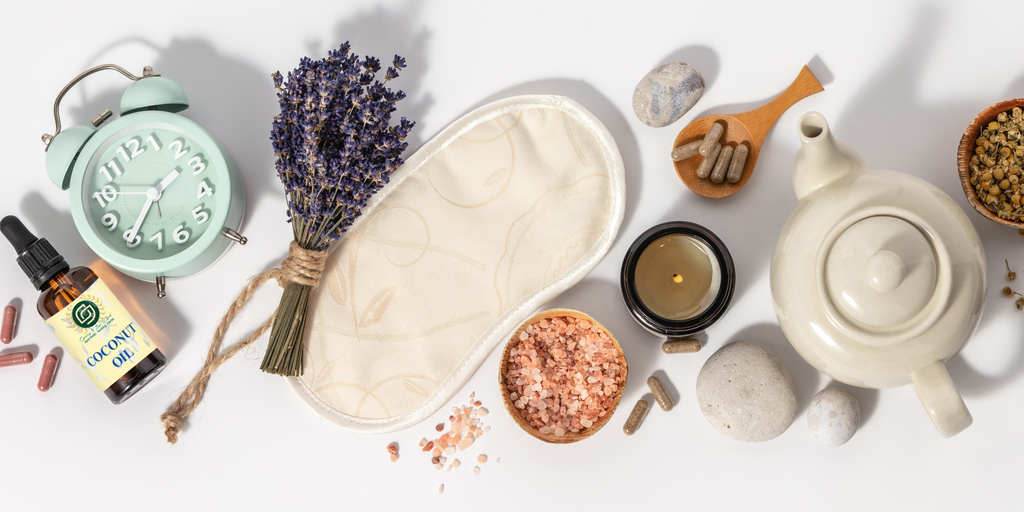
All you need to know about Youth Restoring Oil (step-by-step guide)
Does your dull skin make it hard to look in the mirror? You’re not...
The human body is known to function efficiently in extreme conditions like lack of food, water, and oxygen. Still, if one lacks enough sleep, it affects the person physically and mentally.
* How is sleep Important?
* How many hours of sleep is enough sleep?
* What are sleep-related issues?
* Mechanism of Sleep and What to do to induce sleep!
Sleep is an essential part of the daily routine; it is a way of recharging the mind and body for the next day. According to the ayurvedic principles: Ahara (food), Nidra (sleep), and Brahmacharya (abstinence) are the three pillars for maintaining health.
Acharya Charak mentioned that happiness and misery, proper and improper growth, good strength and weakness, potency and sterility, knowledge and ignorance, and life and death of an individual depend on the quality of sleep.
Sleep is essential for maintaining good physical and mental health and the overall well-being of an individual.
The time for sleep is dependent on various factors like Age.

Age is one factor for sleep, although fulfilling the hours of sleep recommended is essential to function-
Quality of sleep: If your sleep is frequently interrupted, then it is not quality sleep. The quality of your sleep is just as important as the quantity.
Previous sleep deprivation: If you are sleep deprived, the amount of sleep you need increases.
Pregnancy: Changes in hormone levels and physical discomfort can result in poor sleep quality.
Aging: Sleeping patterns might change in older adults. They tend to sleep more lightly and for shorter periods than younger adults. Older adults also tend to wake up multiple times during the night.
Getting the right amount of sleep is linked with good health and better health, including improved attention, behavior, learning, memory, control of emotions, quality of life, and mental and physical health.
Insomnia is the condition of sleeplessness, difficulty in getting sleep, and not getting enough sleep to feel fresh to start the day.

Signs of insomnia:
Reasons for insomnia:

Acharya Charak, says when the mind is calm and the five senses are resting, no exchange of information occurs when the brain starts to relax and sleep is induced, and one falls asleep.
The scientific explanation for this is what we know as the body's rhythm, i.e., the circadian cycle, where the body is controlled by a biological clock and sleep drive. The biological clock follows the light. That’s why we tend to feel sleepy as it gets dark and wakes up as the body senses light.
These rhythmic changes are hampered in some people for various reasons, eventually leading to insomnia-like conditions.
Following are a few tips to help you Sleep!
Sleep deprivation has adverse effects on physical and cognitive performance, mood, and some metabolic and hormonal functions. So, go on, turn off the lights, count the sheep and get a good night’s sleep.
By: Dr.Mrinmayee
I just had a baby and knowing these facts has truly helped. Those sound sleep capsules work really well, by the way! Thank you for this article :)
Does your dull skin make it hard to look in the mirror? You’re not...
Have you ever paused during a busy day to take a deep breath—only to...
Imagine coming back home from a long, draining meeting, your head pounding, and not...


